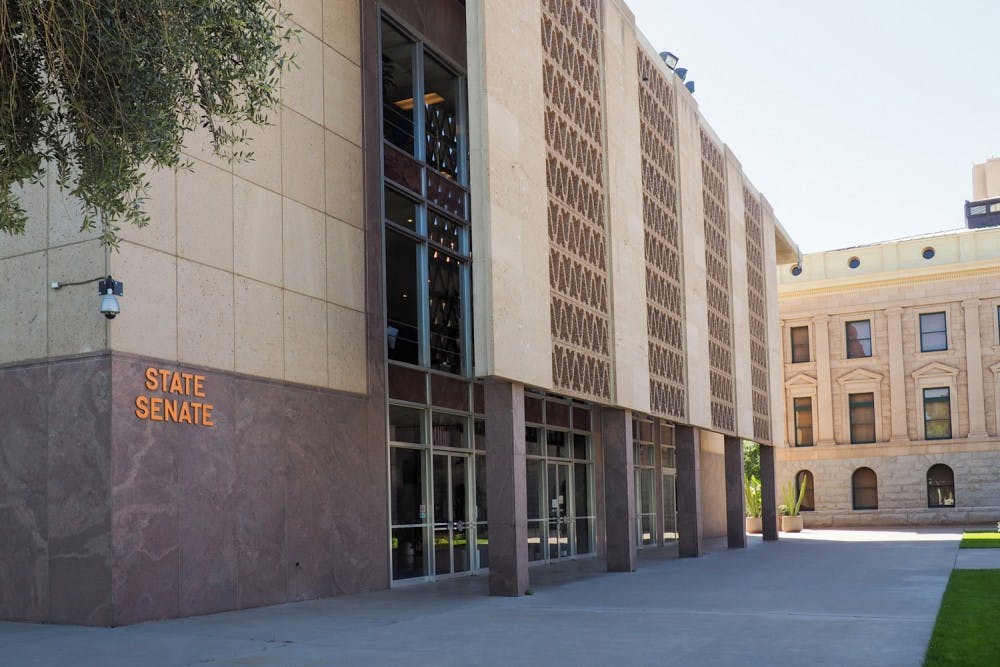As the saying goes, slow and steady wins the race. However, that’s yet to be determined with Arizona’s state budget for the 2016-17 fiscal year.
The Arizona State Senate released their 2016-17 budget bill Tuesday evening. The bill, introduced by Senate President Andy Biggs and Senate Majority Leader Steve Yarbrough, will tentatively increase university funding by $32 million.
Those increases are split up into two sections. Ongoing funding, which will be factored into next year’s budget, and one-time funding, which is designated specifically for this fiscal year. According to the Joint Legislative Budget Committee, the proposed budget will increase ongoing funding by $13 million and one-time funding by $19 million.
ASU specifically will receive around $16.5 million, $3 million of which will be specifically earmarked for what they call a "freedom school." The UA also received $2 million in strings-attached money for a similar program.
"We did not seek funding for this new center but we’re honored that state leaders believe it would be well-situated at ASU, where we have fostered a culture of intellectual diversity," Mark Johnson, senior director for media relations and strategic communications, wrote in an email.
The Senate Appropriations Committee is reviewing the bill, and amendments are expected as it goes through various legislative committees.
Ryan Boyd, vice president of policy for Undergraduate Student Government Downtown, has been advocating for this increase since the legislature cut university funding by $100 million in their previous budget. He said student government leaders and the universities have both been specifically advocating for the $32 million increase.
“It’s wonderful to see additional support for the universities no matter what is is, even if it’s only one-time money,” Boyd said. “That’s OK because we can try and use that now to help reduce the pressures we’re under."
However, history graduate student Ethan Clay, Tempe director for Students for Affordable Tuition, said he is frustrated by how the money is allocated. More specifically, he said he is disheartened by the $19 million in one-time spending because it isn't a long-term investment.
“I’m really disappointed at the one-time funding because that means we’ll have to go down there and do the fight all over again,” Clay said.
He also said he was unsure if the $3 million designated for what he called ASU’s “economic freedom school" is a good investment.
“I’m glad to see economic diversity on campus,” Clay said. “But I’m confused as to why the state legislature isn’t investing in students, but they’re investing in research that has a partisan focus on it."
However, the story is far from over. Legislatures intended the proposed budgets by both the Senate and the House to be finished last week, but due to closed-door conversations and disagreements, those budget proposals were delayed. The Senate just recently released their budget, and House members are still in the middle of negotiations.
However, the journey to a finalized budget is a long one.
First, Arizona Gov. Doug Ducey releases a budget proposal, both the House and Senate release their own individual budget bills, each bill goes through committee, the two merge in the wake of negotiations and then the governor finally signs the revised budget into law.
Boyd said those allocations could very well fluctuate in revisions, but that he’s confident the Senate budget will stay intact because of Bigg’s considerable influence in the legislature.
Biggs and his office also said they were confident in the budget’s future, though Rebecca Pope, public relations intern for Bigg’s office, emphasized the fact that the actual numbers may fluctuate.
“We are restoring some of the funding that was lost previously,” Pope said. “That’s the plan so far, nothing has been voted on or passed. … We’re working on providing the best budget we can for the state.”
Arizona Board of Regents Communications Manager Julie Newberg also voiced confidence in the potential increases.
"As the state continues to make its way back from economic challenges of the Great Recession, it is very encouraging that legislators are prioritizing funding for our public universities," Newberg said. "We have a long way to go, but we are appreciative of the growing support of legislators who champion our university system."
Related links:
ASU President Crow: In-state tuition won't increase despite Ducey's proposed university funding cuts
Ducey boosts funding for state universities in budget proposal
Reach the assistant news editor at megan.janetsky@asu.edu or follow @meganjanetsky on Twitter.
Like The State Press on Facebook and follow @statepress on Twitter.




